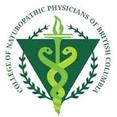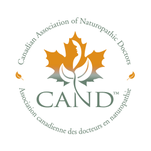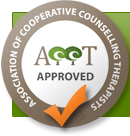Living With Celiac Disease
If you or a loved one has celiac disease please know you are not alone, there is appropriate informed care available for you and, regardless of where you are in your journey, we hope you or your family benefit from learning something here!
On This Page:
Note: Table of contents is clickable
1) Dr. Wong Explains why educating about celiac disease is so important.
2)What you need to know about Celiac disease
3) Mental Health & Celiac Disease
4) How We Can Help
Some Important Things to Know:
anchor: drwongexplains
Dr. Wong explains why educating about celiac disease is so important
You would think that with so many more gluten free options out there, living with celiac disease would have become easier. Regrettably this is often not the case. Living with celiac disease within a growing gluten free health trend has actually become increasingly more difficult. Many celiac patients don't realize they require a more stringent standard for gluten free than those wanting follow a health trend.
Unfortunately, there is a lot of misinformation about Celiac Disease, even amongst the medical community. I supervise and teach student naturopathic doctors as well as train healthcare professionals through The Conscious Clinician Movement. My hope is that I can educate as many students, doctors, health professionals, and patients as possible so that the most current information is well known in the community. I encourage my students to be aware of their bias and know the research. Most importantly though, I emphasize the importance of working with the individual patient in front of you. Celiac disease can manifest in many different ways and we are still discovering the full spectrum of its effect on the body.
Unfortunately, there is a lot of misinformation about Celiac Disease, even amongst the medical community. I supervise and teach student naturopathic doctors as well as train healthcare professionals through The Conscious Clinician Movement. My hope is that I can educate as many students, doctors, health professionals, and patients as possible so that the most current information is well known in the community. I encourage my students to be aware of their bias and know the research. Most importantly though, I emphasize the importance of working with the individual patient in front of you. Celiac disease can manifest in many different ways and we are still discovering the full spectrum of its effect on the body.
"Some patients need more than just a gluten-free diet to resolve their symptoms" |
First and foremost I think it’s important to believe Celiac patients when they say they feel a symptom is associated with Celiac disease. They know their body best and it’s their lived experience with the condition. It is important to collaborate with the patient to find the best treatment options possible, this leaves patients feeling empowered and supported. As research in Celiac disease is slowly increasing, both anecdotal evidence, as well as scientific research, is vitally important to the treatment and management of the condition. Many of the patients coming to me today say they feel dismissed and abandoned. The care they have sought out is often uninformed or incomplete. Some patients need more than just a gluten-free diet to resolve their symptoms, this is sometimes due to unknown cross-contamination but this can also be because there are comorbidities present.
I also feel passionate about educating about Celiac disease because I have lived in a Celiac household and although I do not have Celiac disease myself I also can not eat gluten. This means I have spent many hours discussing and looking for unique solutions to the problems that people with celiac disease often face on a daily basis.
I also feel passionate about educating about Celiac disease because I have lived in a Celiac household and although I do not have Celiac disease myself I also can not eat gluten. This means I have spent many hours discussing and looking for unique solutions to the problems that people with celiac disease often face on a daily basis.
anchor: whatyouneedtoknowaboutceliac
What you need to know about celiac disease
|
anchor: whatisceliac
What is celiac disease?Celiac disease is an autoimmune condition that attacks the villi in the small intestine and is triggered by eating gluten. Your villi is a vital part of your small intestine that pulls nutrients from your food for your body. If the body can’t get nutrients this can cause serious health complications and at its very worst can also be fatal. People with celiac disease can not tolerate even minor cross-contamination. Cross-contamination is when something your food touches has also touched gluten. |
Some Important Things To Know...#1 - A gluten challenge is required prior to any celiac testing. This means avoiding starting a gluten free diet prior to confirmation of diagnosis. Some Patients opt not to challenge or test because they have already found relief in the gluten free diet. anchor: glutenchallenge
|
|
anchor: symptomsofceliac
What are the symptoms of celiac disease?Celiac disease has hundreds of symptoms. In fact, The University of Chicago Celiac Disease Center states on their website there are over 200 symptoms. Due to lack of awareness, some medical websites do not include this important information. It is important that health professionals shine a light on this information or new research as misinformation and minimization can be really damaging to endure on top of having a life-altering diagnosis.
Some celiacs have fewer symptoms or manageable symptoms on the gluten-free diet or no felt symptoms at all. A person with celiac disease experiencing no symptoms is often referred to as asymptomatic celiac disease but it is important to know in this case, the autoimmune condition is still active and causing serious damage. Often the description of celiac disease on health websites only list a few symptoms but it does not reflect the real-life severity of the symptoms that many people with celiac disease have to endure. This creates misinformation for the general public when they are trying to understand their family or friends’ experiences. This also affects how seriously organizations or institutions will consider the condition, especially in relation to accommodating people with celiac disease. This can include but is not limited to, school food programs, airlines, travel in general, amusement parks, jobs that tend to be in remote locations, hospitals, and restaurants. |
Some Important Things To Know...#2 - All celiac testing requires a gluten challenge of eating at least one serving of gluten per day for multiple weeks. The methods or length of the gluten challenge can be different for both the blood test and endoscope, this can also vary from different authorities on celiac disease as it continues to evolve and change as further research is conducted. This is something you should consult your informed health care provider about if you have any questions as it can have some nuances that are important for diagnosing or ruling out celiac disease. anchor: challengediagnosisceliac
|
|
anchor: symptomscomorbidities
A Non-Exhaustive List of Celiac Disease Symptoms and Comorbidities:Some Common Symptoms of Celiac Disease- Neurological symptoms such as numbness, tingling, weakness, or pain - Fatigue - Peripheral Neuropathy - Reflux or Heartburn - Weight Gain or weight loss - Hyperactive post gluten exposure - Brain Fog - Headaches - Constipation or thin stools - Diarrhea - Multiple food sensitivities or Intolerances - Bloating, Gas, & abdominal cramps (SIBO) - Enamel defects and discoloration ( Some dentists know this & will send the patient off for testing ) - Extensive Fatigue - Infertility - Joint pain - Numb and tingling legs - Dermatitis herpetiformis ( skin rash ) - Mental health symptoms such as depression or anxiety - Conditions of the Liver ( Fatty liver etc ) - Gallbladder disorders - Anemia Some Comorbidities of Celiac DiseaseThese conditions are separate from celiac disease but sometimes happen together in conjunction with celiac disease. - SIBO - Small Intestinal Bacterial Overgrowth - SIFO - Small Intestinal Fungal Overgrowth - GERD - Eosinophilic esophagitis/gastritis - Lymphocytic gastritis - Food Sensitivities - Lactose and/or Fructose Intolerance - Other Food Intolerances - Fibromyalgia - Chronic Fatigue Syndrome - MCAS - MTHFR mutations - ADHD - Autism - Trisomy 21 - Type 1 Diabetes - Thyroid Conditions - Autoimmune conditions - Narcolepsy |
anchor: risksglutenfree
What are the possible risks if you don't go gluten-free?- Vitamin & mineral deficiencies
- Osteoporosis - Cancer (such as Non-Hodgkin's lymphoma or small intestinal adenocarcinoma) - Anemias - Refractory celiac - Thyroid conditions - Autoimmune conditions (MS, Diabetes, Hashimoto's etc.) - Celiac Crisis (life-threatening syndrome- severe dehydration, malnutrition, renal dysfunction, and electrolyte disturbances) |
|
anchor: whatisgluten
What is Gluten?Gluten is a protein that is found in wheat, barley, and rye. Sometimes oats are included in this list but oats are controversial. Some people with celiac seem to tolerate them well, as long as they are grown and harvested in a gluten-free environment (using Purity Protocol practices). Other people with celiac disease can’t tolerate oats at all even if they are grown and processed in a gluten-free environment. |
Some Important Things To Know...#3 -The Anti Tissue Transglutaminase (Anti ttg) blood test for celiac disease is prone to false negatives due to immunodeficiency. Immunodeficiency means low antibodies which can be a comorbidity of celiac disease, which results in the false-negative due to insufficient antibodies. When the blood test is done, another blood test called Total IgA (Immunoglobulin A) should always be done concurrently to catch false negatives. These tests may also need to be repeated over a lifetime, especially for those with a family history of celiac disease as the onset of celiac disease can happen at any age. anchor: celiacbloodtesting
|
anchor: misinformationdiagnosis
The Challenges Of Misinformation In The Medical Community While Diagnosing Celiac DiseaseCommonly I see confusion amongst health professionals with conducting the testing for the celiac diagnosis or information about celiac disease in general. Many patients come to me struggling with experiences of healthcare practitioners who don’t understand how to test for celiac disease. I mention this not to cast a negative light on these practitioners but to help validate patients who have been dismissed due to lack of understanding.
The lack of understanding of celiac disease can delay the diagnosis even further, the average person spends at least 10 years trying to discover what is causing their symptoms before they are diagnosed or even longer if the person seeking diagnosis is not white, overweight, 2SLGBTQIA+ and/or female. As we know there is a substantial issue with bias in medicine. If you think you were tested for this condition but you didn’t eat gluten ( at minimum 3 servings of bread or gluten a day for 6-8 weeks ) before your blood test or endoscope, unfortunately a diagnosis of celiac disease could have been missed. If this is the case for you it’s important to find a physician knowledgeable in celiac disease to discuss options for diagnosis.
|
Some Important Things To Know...#4 - Endoscope diagnosis with biopsy is currently the gold standard for diagnosing celiac disease. anchor: endoscopyceliac
|
anchor: geneticautoimmune
Celiac Disease Is A Serious Autoimmune Disease
|
Some Important Things To Know...#5 - IgG and Food Sensitivity testing for Gluten, Wheat, Barley, and Rye are different from Anti ttg testing and are not diagnostic of celiac disease. anchor: celiacfoodsensitivity
|
anchor: asymptomatic
Asymptomatic Celiac DiseaseCeliac disease can also be asymptomatic celiac disease, in other words, the patient has no felt symptoms. This is a particularly tricky form to treat and it has just as much risk of developing long-term consequences as symptomatic celiac disease.
It’s tricky to treat because the person with asymptomatic celiac disease might not know what cross contamination has caused damage. This means that they sometimes need to have more endoscopes and more blood tests to monitor possible gluten exposure. If the tests come back positive for autoimmune activity or villi damage then the process of elimination can be quite burdensome. Patients with asymptomatic celiac disease can sometimes be unaware of their symptoms until they go on a gluten free diet and the symptoms they thought were normal, can sometimes resolve. |
anchor: dermatitisherpetiformis
The Celiac Skin Condition - Dermatitis HerpetiformisThis can be a challenging expression of celiac disease as it is rare in the total population and unfortunately there is even more misinformation among the general public and some healthcare providers.
Dermatitis herpetiformis is a skin manifestation of celiac disease. Dermatitis herpetiformis appears like tiny fluid-filled bumps or blisters and is often intensely itchy. This skin condition affects 15-20% of people with celiac disease but some people with dermatitis herpetiformis can have an otherwise asymptomatic presentation of celiac disease. Those diagnosed with dermatitis herpetiformis also need to adhere to a gluten-free diet and undergo regular nutritional screening as comorbidities and long term health outcomes are very similar to those with asymptomatic presentation of celiac disease, in fact, they can present with even more severe symptoms that they do not realize are related. |
|
anchor: risksadhering
Risks of Not Adhering To A Gluten-Free DietRecently, new research around celiac disease is focusing on symptoms and reactions beyond intestinal manifestations of the condition. Previously research has focused mainly on studying celiac disease’s effect on the small intestine. This research shows that the villi in the small intestine are damaged by the autoimmune response to gluten. This damage can take from 6 months - 2 yrs to recover after starting a gluten free diet. Celiac disease is also correlated with an increased risk of developing other conditions such as hypothyroidism, Type 1 diabetes, other autoimmune conditions, cardiovascular disease, & some types of cancer. Celiac disease is a diagnosis often missed due to symptoms that do not present as textbook, or due to the masking of overlapping diagnoses or comorbidities. Also important to note that is often not written about is celiac disease can have comorbidities. So, if while adhering to a gluten-free diet, there is still difficulty with symptoms, there is a possible unknown cross-contamination happening or it might be time to investigate comorbidities. |
anchor: geneticceliac
Celiac Disease Is A Genetic ConditionIt is important to educate yourself as a person with celiac disease as this is a genetic condition, it is also helpful to include any family that is willing to learn. This will help family be aware of when they may need to get checked out to see if celiac disease is active. celiac disease can lie dormant until the genes get activated. This can happen for seemingly no reason but there has also been evidence that it can happen after a major life event or trauma. For instance, this could look like birthing a child, a car accident or even the death of a loved one.
|
Some Important Things To Know...
#6 - There are many diagnostic tools being researched at the moment and hopefully, we will be able to use them very soon, especially if it removes the need to undergo an endoscope and weeks of gruelling gluten challenging.
anchor: Newdiagnosticsceliac
|
anchor: diversityceliac
Diversity & Celiac DiseaseDue to lack of testing, resources, and issues with bias in healthcare we don’t know exactly how prevalent celiac disease is worldwide. So far there is some research estimating that among the African, Hispanic, and Asian populations there is a prevalence of 1 in 236 compared to 1 in 133 in the US and 1 in 114 in Canada in the general population. An estimated 90% of celiac disease cases across Canada still remain undiagnosed. It’s important to be aware of this so that patients don’t suffer needlessly due to missed diagnoses. Another issue is access to safe gluten-free food and nutritional education equally for all cultural diets or lack of resources due to inequality of privilege or unaffordability that affects marginalized people inequitably. |
anchor: celiacsources
Solid Sources Of Info On Celiac DiseaseA great place to get information about celiac disease is the University of Chicago or Columbia University, they both have special celiac disease centers that often have the most up-to-date information as they are dedicated to studying and educating about celiac disease.
Your healthcare providers may not know this up-to-date information about celiac disease which can make it difficult to get appropriate diagnostics or follow-up care so it is recommended to print out info from the sources mentioned above and bring information into your appointment with you. These universities have great professional continuing education credits and education for medical professionals that is easily accessible for your health care provider. |
anchor: glutenforeveryone
Is A Gluten-Free Diet Good For Everyone?Not necessarily, while a gluten-free diet may be helpful for some individuals, eating gluten-free is not a cure-all solution for everyone. There are many people without celiac disease that are able to tolerate gluten without any health issues. Gluten is found in a lot of whole-grain products that have some nutritional benefits over gluten-free grains, like higher amounts of fibre, manganese, and selenium. Gluten-free processed foods tend to have higher amounts of calories, sugar, salt, and fat so are not necessarily healthier choices even for those eating a gluten-free diet. Gluten-containing grains have been a staple food source for many cultures and are a good source of nutrition for those where access to food is scarce. |
anchor: mentalhealthceliac
Mental Health & Celiac Disease
anchor: distressingmentalthealthceliac
Celiac Disease Can Create Distressing Mental Health ChallengesPeople with celiac disease deserve support from a counsellor that is well-informed about the condition, as counselling is often beneficial. It’s surprising this is not a more integrated approach given the many invisible challenges people with the condition endure. More celiac disease informed mental health practitioners are urgently needed. I am hoping to encourage colleagues in the health professions to consider informed mental health counselling, integrated with treating physical symptoms, as the standard of care. Many people with celiac disease seriously struggle with the social aspects of the condition, and although the belief in the struggle is often challenged constantly, the struggle is very real. Mental health is a big part of treating celiac disease as it can manifest as anxiety and depression, even when strictly adhering to a gluten-free diet successfully; this is especially so when not adhering to a gluten-free diet or when suffering from cross-contamination, sometimes also called gluten poisoning. This manifestation can be from the physical disease itself and/or from the social challenges the person with celiac disease constantly faces. |
"The social challenges are often a large part of the mental health component. People with celiac disease often feel isolated, misunderstood, minimized, outright gaslighted and left out."
anchor: socialceliac
The Social Challenges Of Celiac Disease & The Lack Of A Support System Can Majorly Impact Mental HealthThe social challenges are often a large part of the mental health component. People with celiac disease often feel isolated, misunderstood, minimized, outright gaslighted and left out. Going out to dinner, a pop over to someone’s house, or travelling is drastically different after receiving the celiac diagnosis. Even job prospects, current work situations or career trajectories can be affected. Sometimes family can be supportive which is wonderful, but in my North Vancouver, BC practice as well as while teaching naturopathic medical students this is sometimes not the case. I often hear during appointments, situations with families and friends can be particularly tricky to navigate. Sometimes it’s even that friend or family member who so badly wants to be inclusive and is adamant they are going to cook, or maybe even have a surprise treat, but they don’t really understand how to cook gluten-free in a gluten-containing kitchen. The person with celiac disease ends up feeling so badly for the host's effort, that they might eat the food in fear they will offend their friends or family. Restaurants sometimes get offended or cranky and dismissive while asking the needed questions to make sure the information is being relayed to the kitchen correctly. Weddings can sometimes feel like an awkward uncomfortable conversation. This is just a small offering of some of the challenges people with celiac disease have to endure on a daily basis. I am often working with my patients to help them prepare and navigate these and many more challenging situations related to celiac disease and the gluten-free diet. I have years of experience with these situations and a lot of empathy for people who have this condition which is why I feel so passionate about educating and advocating for people with celiac disease. |
anchor: helpceliac
How We Can Help
anchor: manyaspectsceliac
Treating The Many Aspects of Celiac DiseaseWhile I have mentioned the mental health treatment options and importance, I also assist the body by assessing and focusing on gut health. This is just one of the many options I like to use when working with a patient who has celiac disease. I also ensure the supplements I do prescribe are manufactured under conditions that are the safest possible to reduce the risk of cross-contamination. Sometimes the symptoms of celiac disease do not completely resolve with a gluten-free diet, in this case, I can work with you to improve quality of life by helping to treat the symptoms that are causing distress or disruption to life. Naturopathic medicine lends really well to this type of condition as we tend to look for the root cause and this can be quite helpful for helping patients who have digestive issues or other symptoms related to celiac disease. |
Some Important Things To Know...
#7 - Diagnostics: At Butterfly Naturopathic Medical Clinic located in North Vancouver, BC we provide patients with access to necessary lab testing to help with the diagnosis of many comorbidities of celiac disease. We can order all tests for you even if you are having your appointment by phone or online. We offer anti ttg and total IgA testing to screen for celiac disease or for follow-up testing for patients with celiac disease on a gluten-free diet to check for improvements and cross-contamination exposure. We also offer routine blood testing to screen for anemias, vitamin, and mineral deficiencies. Other tests for comorbidities that we offer include testing for SIBO, food sensitivities, lactose intolerance, thyroid dysfunction, autoimmune disease screening, and diabetes.
anchor: Butterflyceliacdiagnosis
anchor: creativeceliac
Creative Solutions For Living A Vibrant & Healthy Celiac LifeAs well as providing Naturopathic medicine in my North Vancouver, BC clinic for many years, as well as my further education as a counsellor and more specifically understanding the unique needs of patients with celiac disease from a mental health perspective, I am well versed in proper gluten-free kitchen practices as I live them. Although I do not have celiac disease I have to eat gluten-free due to Non-Celiac Gluten Sensitivity and have loved ones who are affected by celiac disease. I can help with guidance to create a safe kitchen setup and find creative solutions for obstacles. Guidance is available for 100% gluten-free households and non-100% gluten-free households. It’s important to have well-informed assistance to understand how to make decisions, get informed mental health support, develop and understand your particular comfort level, as well as participate in developing your treatment plan going forward. If you come to see me I absolutely encourage you to be part of your treatment and will collaborate with you as a patient. Patient education and collaboration are an important part of my overall treatment philosophy. It’s important to note that every person’s celiac disease is different and there are hundreds of ways that celiac disease presents itself. Each person has to decide what they are comfortable with and where their firm boundaries or deal-breakers lie. |




